In the realm of game development, Python has emerged as a powerful and versatile programming language. With its simplicity and readability, Python has become a preferred choice for many developers, especially those diving into the world of game development. In this blog post, we’ll take a deep dive into Python game engines, exploring their features, functionalities, and suitability for different types of game projects.
One of the most renowned Python game engines is Pygame, which is an open-source library designed to make the creation of games easier for beginners and veteran programmers alike.
Pygame’s framework is built on simplicity, allowing the development of fully functional games with fewer lines of code. It provides the tools to create graphics, sounds, and gameplay mechanics without the need for complex code structures.
Another engine that gains attention in the Python game development community is Panda3D. This engine, developed by Disney and maintained by the community, provides a rich set of features for more complex game development.
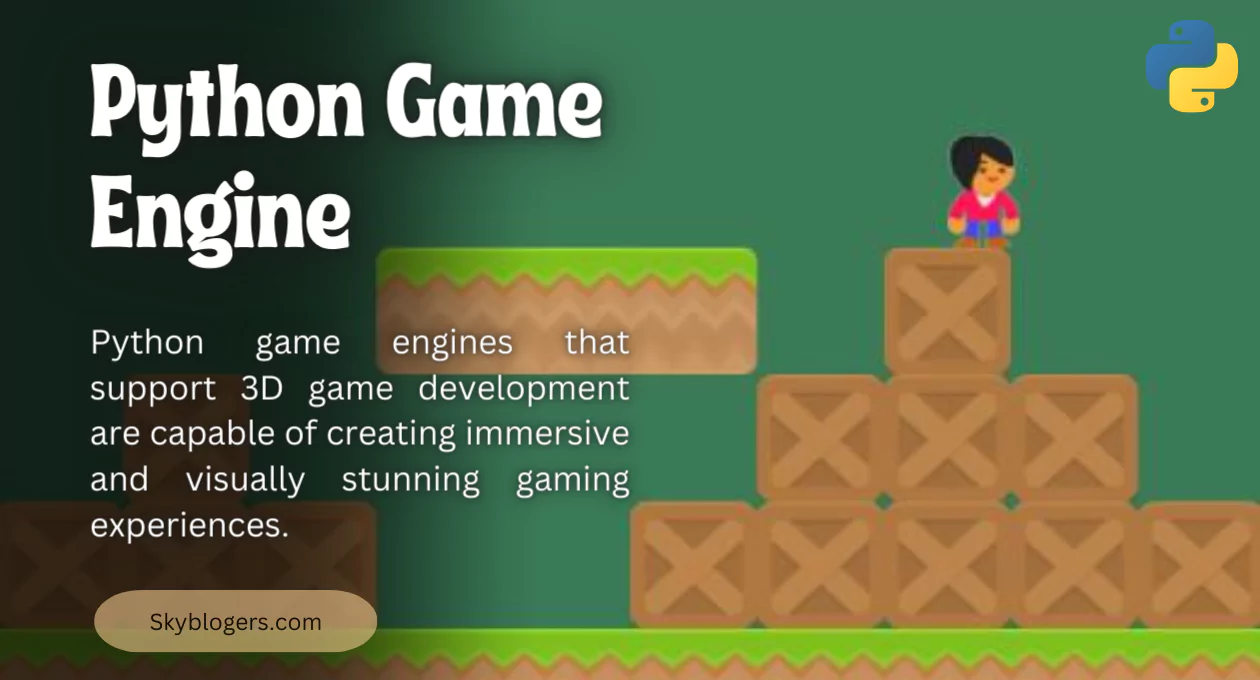
Panda3D is particularly known for its powerful rendering capabilities and its ability to integrate with other languages, such as C++, enabling developers to push the boundaries of their game’s performance and graphical detail.
Python Game Engine 3D
Python game engines that support 3D game development are capable of creating immersive and visually stunning gaming experiences. These engines leverage Python’s flexibility and integrate with 3D graphics libraries to render lifelike environments and characters.
Blender Game Engine, once a part of the well-known Blender 3D animation suite, stands out among Python-driven 3D game engines. It enables game creators to seamlessly shift between game development and animation, offering a unique pipeline for asset creation and game execution.
Although the game engine’s functionality has been discontinued in the latest versions of Blender, the legacy of Blender Game Engine continues to inspire a generation of developers invested in the Python ecosystem.
Embedded Systems Experts: Unveiling the World of Masters
Python Game Engine GitHub
Many Python game engines have their repositories hosted on GitHub, allowing developers to access the source code, contribute to the projects, and collaborate with other developers.
On GitHub, thriving communities of Python developers collaborate to refine game engines like Godot, which, although not exclusively Python-based, has support for a scripting language similar to Python called GDScript.
Godot’s open-source nature and power-packed features make it highly accessible and adjustable for a variety of game development projects. It stands out for its node-based architecture, which simplifies scene management and game organization.
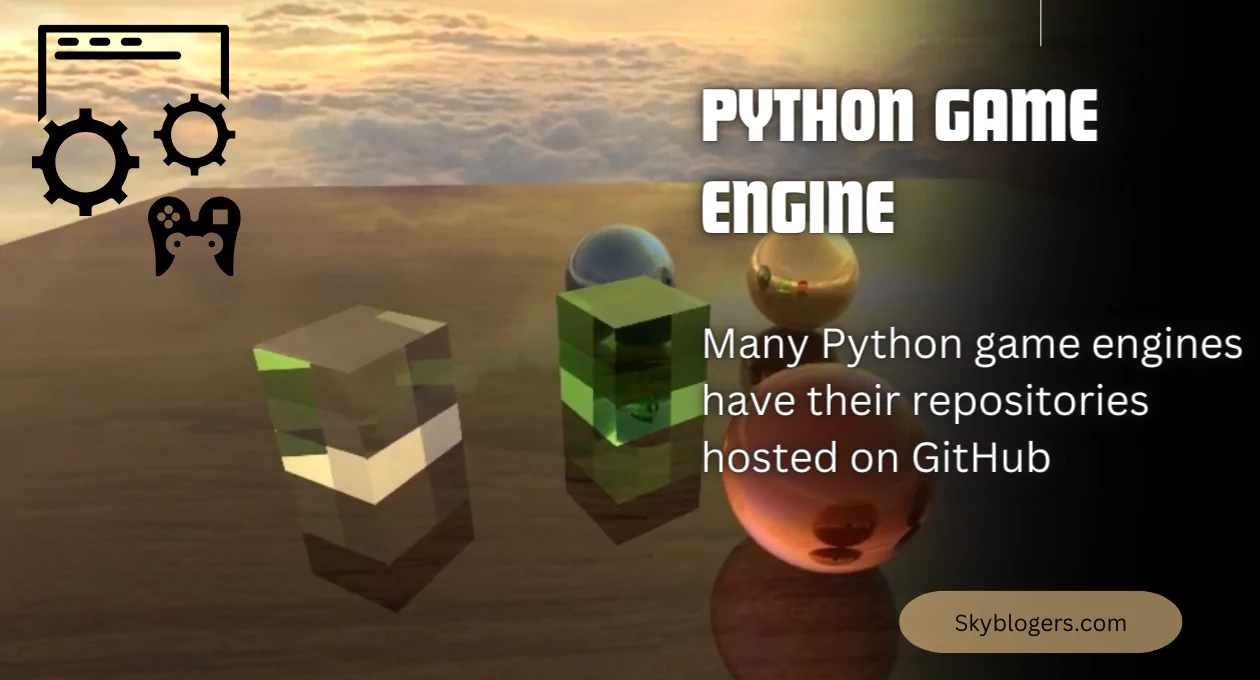
The growth of Python in game development is also bolstered by engines such as Kivy, which are particularly adept at handling multitouch applications. Kivy lends itself to rapid game prototyping and development, thanks to its user-friendly API and a wide array of widgets. Its ability to deploy on many platforms including iOS, Android, and Windows, makes it an adaptable tool for game developers aiming to reach a broad audience.
Python Game Engine Tutorial
Beginners and experienced developers alike can benefit from tutorials that provide step-by-step guidance on using Python game engines. These tutorials cover topics such as installation, basic game development concepts, and advanced techniques.
In addition to tutorials, the availability of extensive documentation and active forums is integral to mastering Python game engines. Newcomers can start with small-scale projects to comprehend the basics of game loops, event handling, and user input, gradually moving to more complex tasks. The documentation often includes examples, enabling developers to learn by doing, which is crucial for understanding the nuances of game development.
Embedded Systems Experts: Unveiling the World of Masters
Furthermore, many Python game engines come with built-in scene editors and design tools that streamline the game creation process. Developers can utilize these tools to construct levels, design characters, and map out gameplay flow directly within the engine. This reduces the need for external software and creates a more efficient development workflow.
Blender Game Engine
Blender, a popular open-source 3D modeling and animation software, also includes a game engine component. Developers can use Python scripting within Blender to create interactive 3D games.
The loss of Blender Game Engine in the latest Blender updates does not signify the end of Python’s influence in 3D game development. Enthusiasts and indie developers alike have taken it upon themselves to either fork the last functional version of Blender Game Engine or develop alternative solutions that maintain the same principles of tight integration between game development and 3D modeling.
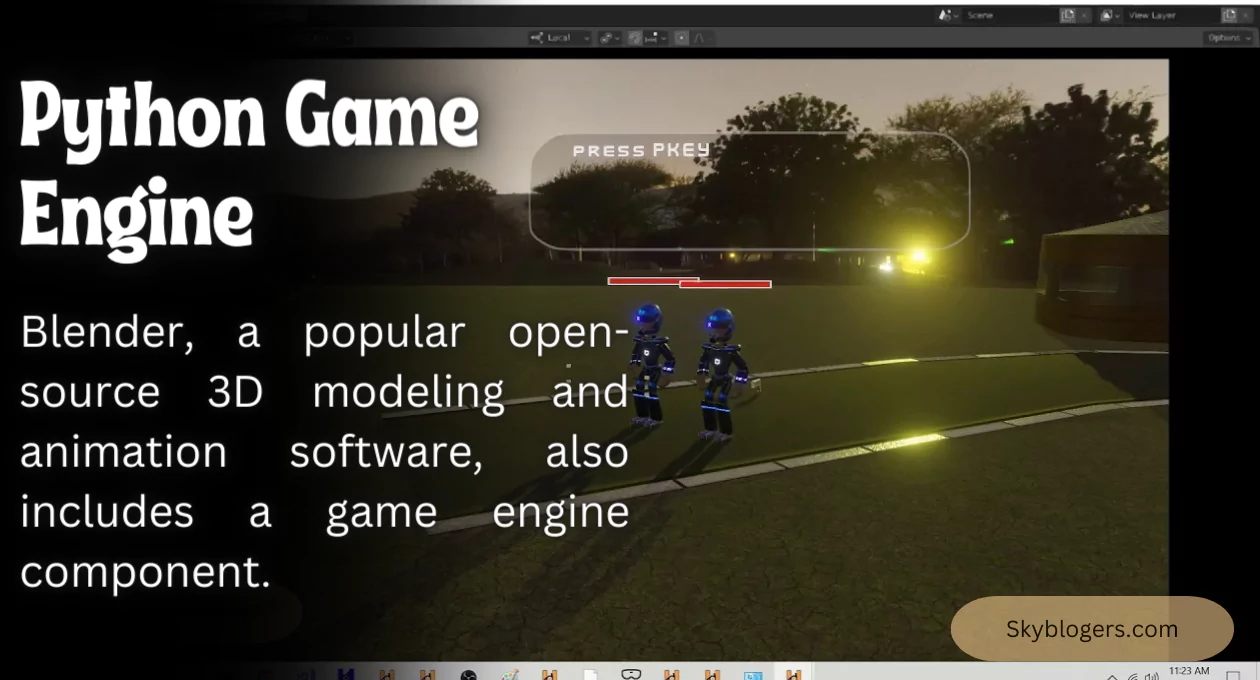
Adopting Python as a scripting language for game development also invites a larger demographic of developers, including those who may start with academic or research-oriented programming. The transition from writing Python scripts for simulation or data analysis to scripting interactive games often proves to be intuitive and, crucially, a rewarding educational experience.
Panda3D
Panda3D is a powerful open-source 3D game engine that offers Python bindings for game development. It provides a high-level interface for building 3D games and supports advanced features such as physics simulation and shader effects.
While Panda3D’s rich feature set makes it a prime candidate for sophisticated game projects, it manages to remain accessible for new developers. Its scene graph organization allows for an intuitive structuring of game elements, and the engine excels in managing complex scenes with numerous objects.
Leveraging Python’s scripting capabilities within Panda3D not only streamlines the game development process but also creates a flexible environment for implementing game logic and AI behaviors. The engine’s commitment to Python ensures that the developer community remains strong and continuously innovative.
Embedded Systems Experts: Unveiling the World of Masters
Python Games Code
Python game engines enable developers to write game code using Python, simplifying the game development process and allowing for rapid prototyping and iteration.
Utilizing Python for game development has distinct advantages, particularly when it comes to the ease of learning the language and the speed at which developers can write and debug code. The synergy between Python’s simplicity and the creative demands of game design invites a diverse range of professionals to contribute to game projects, from indie developers to educational instructors.
The expansive library ecosystem that Python offers further enhances game development capabilities. Modules such as Pygame provide a solid foundation for game development, equipping creators with the tools necessary for building everything from simple 2D games to more layered, interactive experiences.
The ongoing development and community support for these libraries ensure that Python remains a relevant and powerful option for game developers.
jMonkeyEngine
Although primarily written in Java, jMonkeyEngine offers Python bindings for game development. It is a robust open-source 3D game engine known for its performance and flexibility.
Leveraging Python within engines like jMonkeyEngine provides developers with the versatility of Java’s performance and the user-friendly scripting potential of Python. This combination enables developers to tackle various aspects of game development, from intricate programming tasks requiring Java’s robustness to scripting interactivity and logic with Python’s accessible syntax.
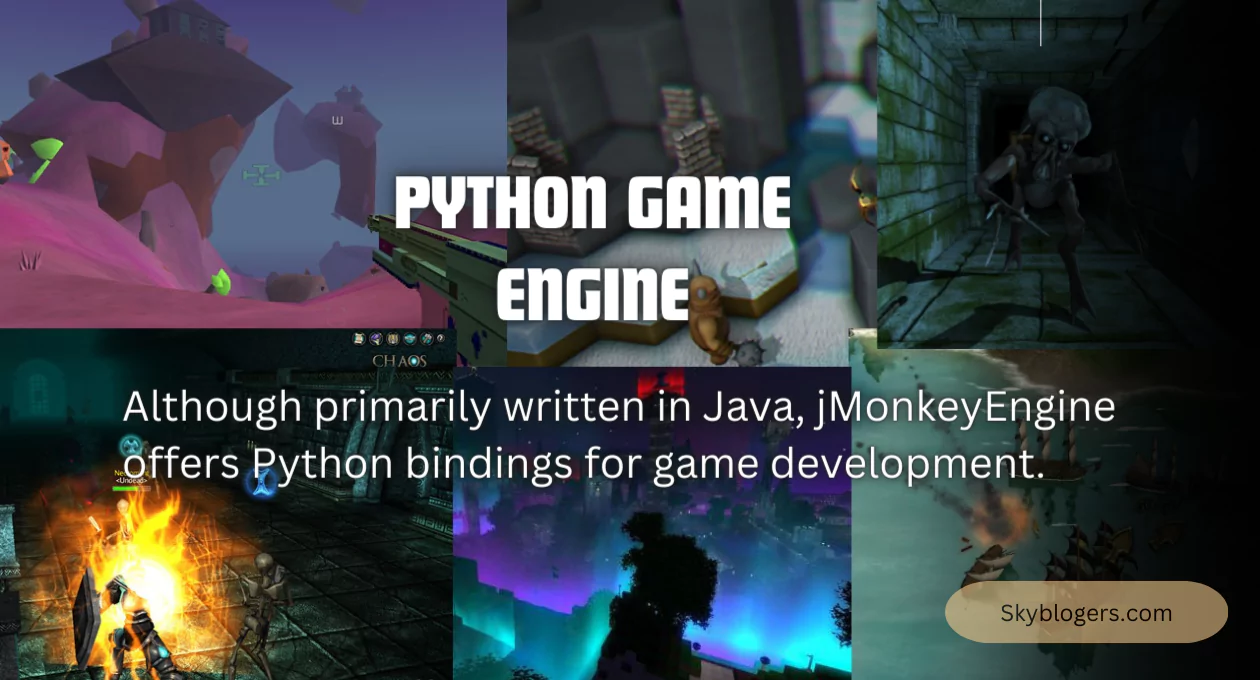
The community around Python-focused game development is burgeoning, and as both indie and professional studios recognize the value of Python’s rapid development cycles, we are witnessing a surge in resources and support for aspiring game developers. This trend is indicative of Python’s growing stature as both a starting point for newcomers and a powerful tool for seasoned programmers.
Python Arcade
Python Arcade is a beginner-friendly game engine designed for 2D game development. It provides a simple and intuitive API for creating arcade-style games using Python.
Despite the focus on 2D game development, Python Arcade doesn’t restrict creators from bringing complex ideas to life. With features that support sprite lists, particle systems, and platformer physics, developers can produce polished and engaging games. Moreover, Python Arcade is lauded for its detailed documentation and a welcoming community, offering comprehensive support for both beginners and experienced developers.
The increasing integration of tools like Python Arcade in education underscores the importance of game development for learning programming skills. By offering a practical application of coding principles within a fun and creative context, students gain a deeper understanding and retention of computational concepts, bridging the gap between theory and practice.
Free Game Engines
Many Python game engines are available for free, making game development accessible to developers of all skill levels. These free engines often come with extensive documentation and community support.
The democratization of game development through free Python game engines has led to an unprecedented wave of creativity and innovation in the indie game scene. Budding developers can now bring their virtual worlds to life without the financial barriers that once stifled independent game production. The open accessibility fuels diverse storytelling and unique gameplay mechanics that might otherwise never reach the gaming community.
This trend extends into the realm of educational tools, where Python acts as the linchpin that connects the dots between programming literacy and interactive learning. With Python’s intuitiveness and the free resources available, students and educators are empowered to use game development as a lively medium to teach and grasp complex computational concepts, making education both informative and enjoyable.
Python Pyglet
Pyglet is a multimedia library for Python that includes features for game development. While not a full-fledged game engine, Pyglet provides essential functionality for creating 2D games.
Pyglet extends beyond facilitating 2D game creation by integrating features for windowing, user interface event handling, loading images and videos, and playing sounds and music. These capabilities make it a versatile tool for game developers who are familiar with Python and seek to develop multimedia applications or games without the full overhead of a larger game engine.
The use of Pyglet is also advantageous for developer education and prototyping, where the learning curve is mild, and the turnaround from concept to execution can be swift. This responsiveness is crucial in educational settings, where students can quickly see the results of their code, keeping engagement high and solidifying coding concepts through practical application.
Unraveling the Secrets of which materials can be used to make fiber optic strands
Open Source 3D Game Engine: Python Options
Python offers several open-source 3D game engines, allowing developers to create immersive gaming experiences without the need for expensive proprietary software.
The potential of Python in 3D game development is encapsulated in engines like Panda3D, a game engine that’s free, open-source, and designed for versatility. It enables developers to write games in Python or C++, offering the flexibility demanded by various development stages.
Particularly in Python, Panda3D’s intuitive API allows for rapid prototyping and iteration, which is ideal for indie developers who need to adapt quickly to new ideas or changes in their game’s design.
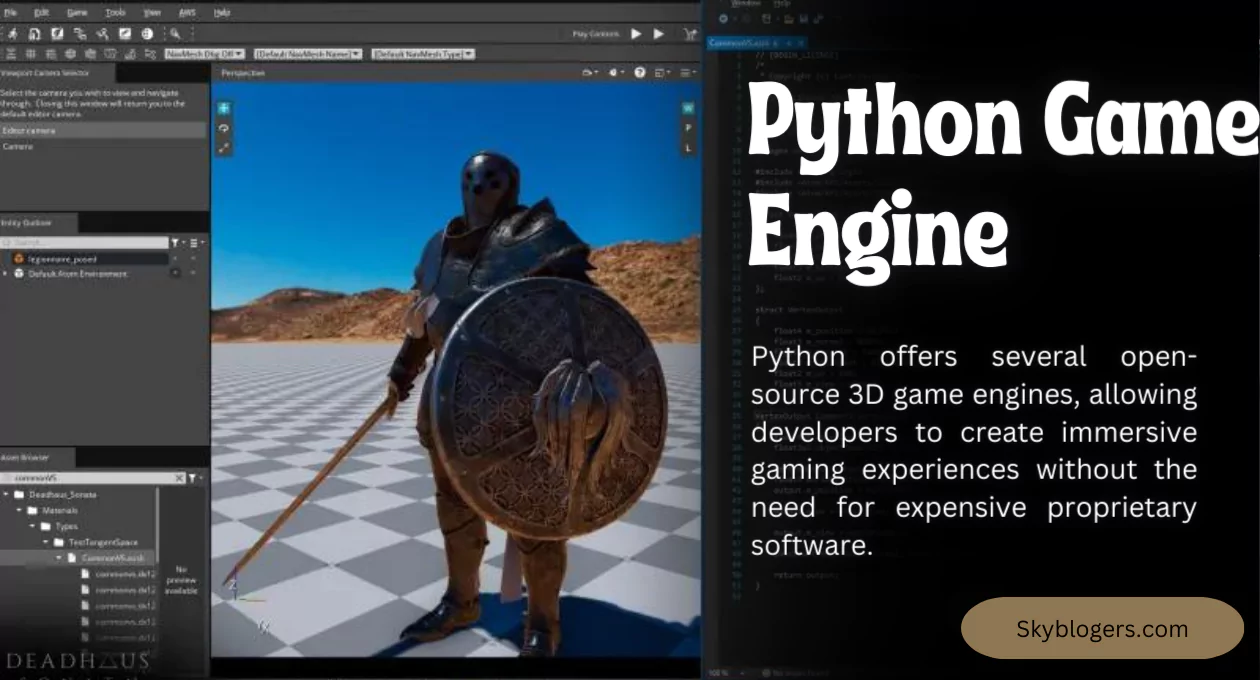
Moreover, Python’s role in the evolution of AI and machine learning has begun to intersect with game development. Through frameworks such as TensorFlow and PyTorch, Python is instrumental in creating games that feature intelligent behaviors, sophisticated learning algorithms, and adaptive gameplay experiences that push the frontier of what games are capable of.
Asteroids Python Code
Asteroids is a classic arcade game that can be implemented in Python using various game engines and libraries. Developers can find Asteroids Python code examples and tutorials online for learning game development.
Python’s extensive library ecosystem frequently plays a critical role in game development, especially when it comes to creating networked games. Libraries such as Pygame provide modules for handling sockets and other networking protocols, allowing developers to create multi-player experiences where players can interact with each other in real-time.
Unraveling the Secrets of which materials can be used to make fiber optic strands
In addition to networking, Python’s libraries facilitate the integration of various input devices. This is essential for game designers who wish to expand the ways players can interact with games, including the use of gamepads, joysticks, and even virtual reality headsets, broadening the scope of potential gameplay dynamics.
Python ASCII Game Engine
ASCII game engines use ASCII art and text characters to create simple yet engaging games. Python ASCII game engines are popular for creating retro-style games and prototypes.
The presence of ASCII game engines in the Python ecosystem represents a nostalgic homage to the early days of computing, where gameplay and graphics were limited to the characters available on a keyboard.
They provide a unique canvas for developers to experiment with game development, focusing on game mechanics and storytelling over complex visuals. These engines enable the creation of games that are both accessible and creatively challenging, appealing to a retro gaming community and those interested in the fundamentals of game design.
Delving into the use of ASCII art for game development also serves as an educational tool, teaching the essentials of programming and game loop dynamics within a simplified context. The simplicity of ASCII games allows for a clearer understanding of how code translates into gameplay, making it an excellent starting point for aspiring game developers and a fun way to practice problem-solving and logical thinking skills.
How to Make a Python Game Engine
Creating a Python game engine from scratch requires a deep understanding of game development principles, graphics programming, and software architecture. Developers can start by prototyping simple game ideas and gradually expanding the engine’s capabilities based on project requirements.
In the pursuit of creating a personalized Python game engine, developers begin by establishing a robust core that handles the fundamental elements of game logic, physics, and rendering.
This requires a clear design and architecture that allows for scalability and integration with various libraries and tools. Seasoned developers often emphasize the importance of starting simple, focusing on basic functionalities before advancing to more complex features.
Moreover, as the engine evolves, meticulous documentation and testing become essential. Proper documentation aids in debugging, onboarding new collaborators, and maintaining code quality over time. Meanwhile, systematic testing ensures that the engine remains reliable and efficient as new layers of complexity are introduced, promising a stable foundation for game creation.
Best Python Game Engine Reddit
Reddit communities such as r/gamedev and r/python are valuable resources for discovering and discussing the best Python game engines. Developers can find recommendations, tutorials, and support from fellow game developers on Reddit.
Amidst the many choices for Python game engines, choosing one that aligns with your specific development goals is paramount. Beginners might prioritize simplicity and extensive documentation, ensuring a smoother learning curve. Conversely, experienced developers may require sophisticated features and optimizations for rendering, AI, and network play, necessitating a more robust game engine.
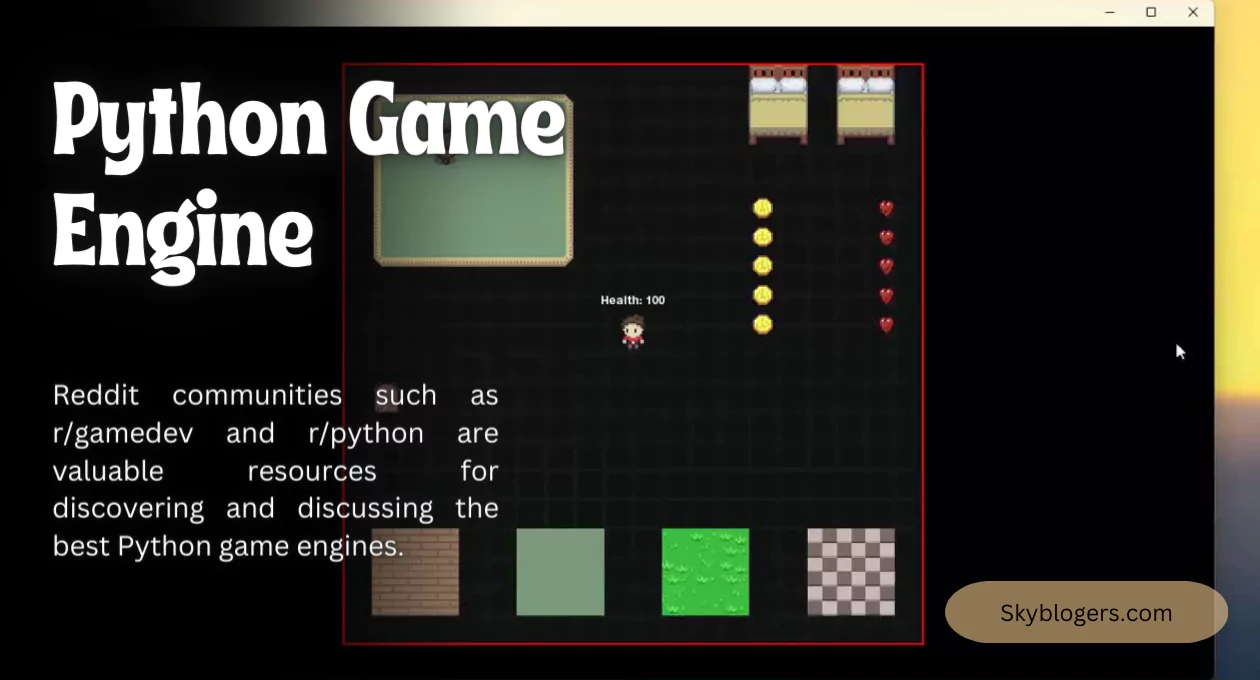
Once an engine is selected, developers can focus on mastering its intricacies. This includes understanding the API, harnessing the engine’s unique features, and joining the community. Active participation in forums and gatherings can provide invaluable insights and foster collaborations that enrich both personal knowledge and the broader game development ecosystem.
Fastest Python Game Engine
Performance is a crucial factor in game development, especially for real-time applications. While Python is not known for its raw performance, some Python game engines are optimized for speed and efficiency, offering fast rendering and responsive gameplay.
Engaging directly with these Python game engines can significantly shape a developer’s understanding of game design and programming. Core programming concepts like loops, conditionals, and object-oriented design come alive when one sees their direct correspondence with game mechanics. As developers iterate over their game designs, they also learn to manage complexity, debugging, and performance optimization.
Furthermore, the integration of third-party libraries and APIs adds another layer of technical mastery. For instance, physics engines and AI algorithms can be incorporated to create more sophisticated game behaviors. This capability empowers developers to push beyond basic games, enabling the creation of rich, complex gaming worlds that captivate players with their intricacy and realism.
Python Terminal Game Engine
Terminal game engines allow developers to create text-based games that run in the command line or terminal. Python terminal game engines provide libraries and tools for handling input, output, and game logic in text-based environments.
Enthusiasts of retro gaming can leverage these terminal game engines to recreate the charm of early computer games, using the same text-based aesthetics that captivated earlier generations of gamers. The simplicity of terminal games belies their potential for complexity and depth, offering developers a unique challenge in design and storytelling.
Additionally, the vibrant community around Python game development plays a crucial role in the evolution of these engines. Through forums, contribution to open-source projects, and collaborative learning, novice and seasoned developers alike push the boundaries of what’s possible in game creation, ensuring a constantly improving ecosystem.
FAQs about Python Game Development
Q: Can Python be used for professional game development?
A: Yes, Python can be used for professional game development, especially when paired with robust libraries and engines designed for creating games.
Q: What is the best Python game engine for beginners?
A: Python Arcade is often recommended for beginners due to its simple and intuitive API, as well as its comprehensive documentation and active community.
Q: Are there any Python game engines that can create games similar to those made in Unity?
A: While Unity itself does not use Python, engines such as Godot offer similar visual scripting capabilities and flexibility that could provide a comparable experience.
Q: Is Python good for 3D game development?
A: Python can be used for 3D game development, with engines like Blender Game Engine offering the necessary tools, though it might not always be the first choice for high-performance 3D game projects.
Q: Do I need to learn C++ if I want to use Python for game development?
A: It’s not strictly necessary, but knowing C++ might be beneficial for understanding the underlying mechanics of game engines and possibly extending the capabilities of Python game development.
Q: Where can I find resources and communities for Python game development?
A: Resources like r/gamedev and r/python on Reddit, as well as Python-specific forums, are great places to find support, tutorials, and discussions on Python game development.
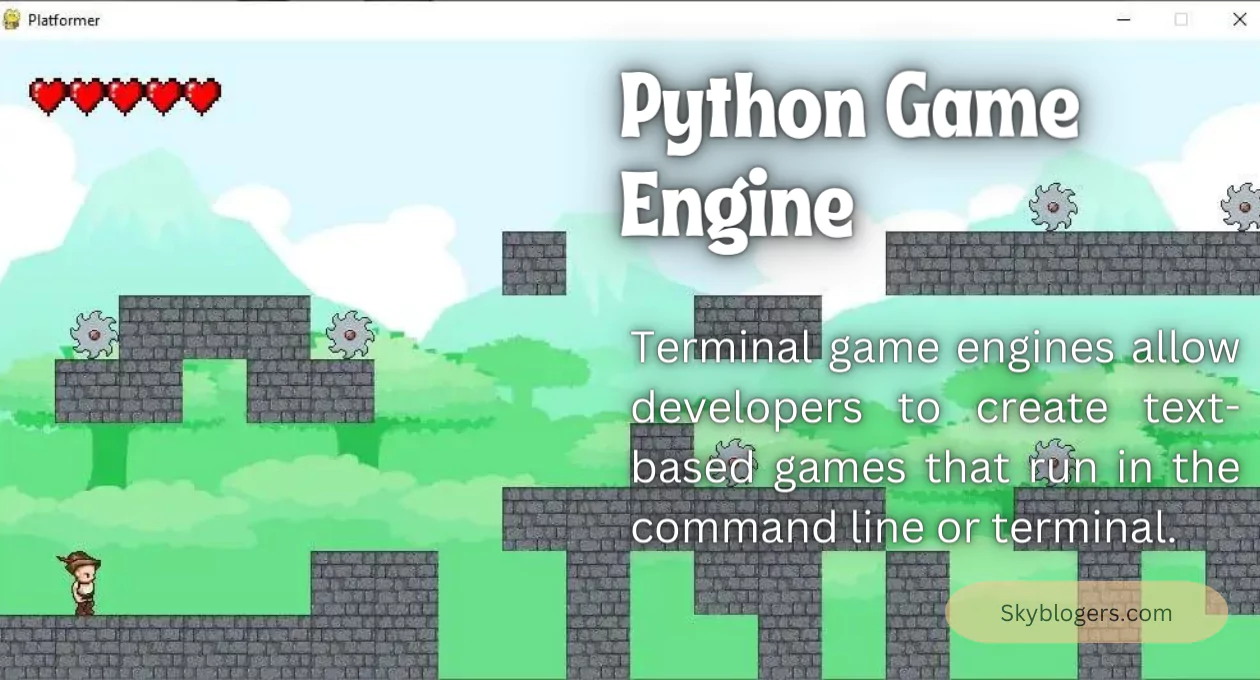
Conclusion
In conclusion, Python game engines offer a diverse range of options for game developers, from beginner-friendly 2D engines to powerful open-source 3D engines. By exploring the various Python game engines and understanding their features and capabilities, developers can find the perfect tool for bringing their game ideas to life.
Whether creating simple prototypes or complex, immersive experiences, Python game engines empower developers to unleash their creativity and build engaging games for players around the world.
The Python ecosystem’s versatility extends beyond traditional game engines, offering libraries like Pygame for those who prefer a more hands-on approach to game development. This library stands out for its flexibility, allowing developers to control game mechanics and graphics closely, ideal for those aiming to build custom gameplay experiences without a fully featured game engine.
For more amazing information keep visiting SkyBlogers.

